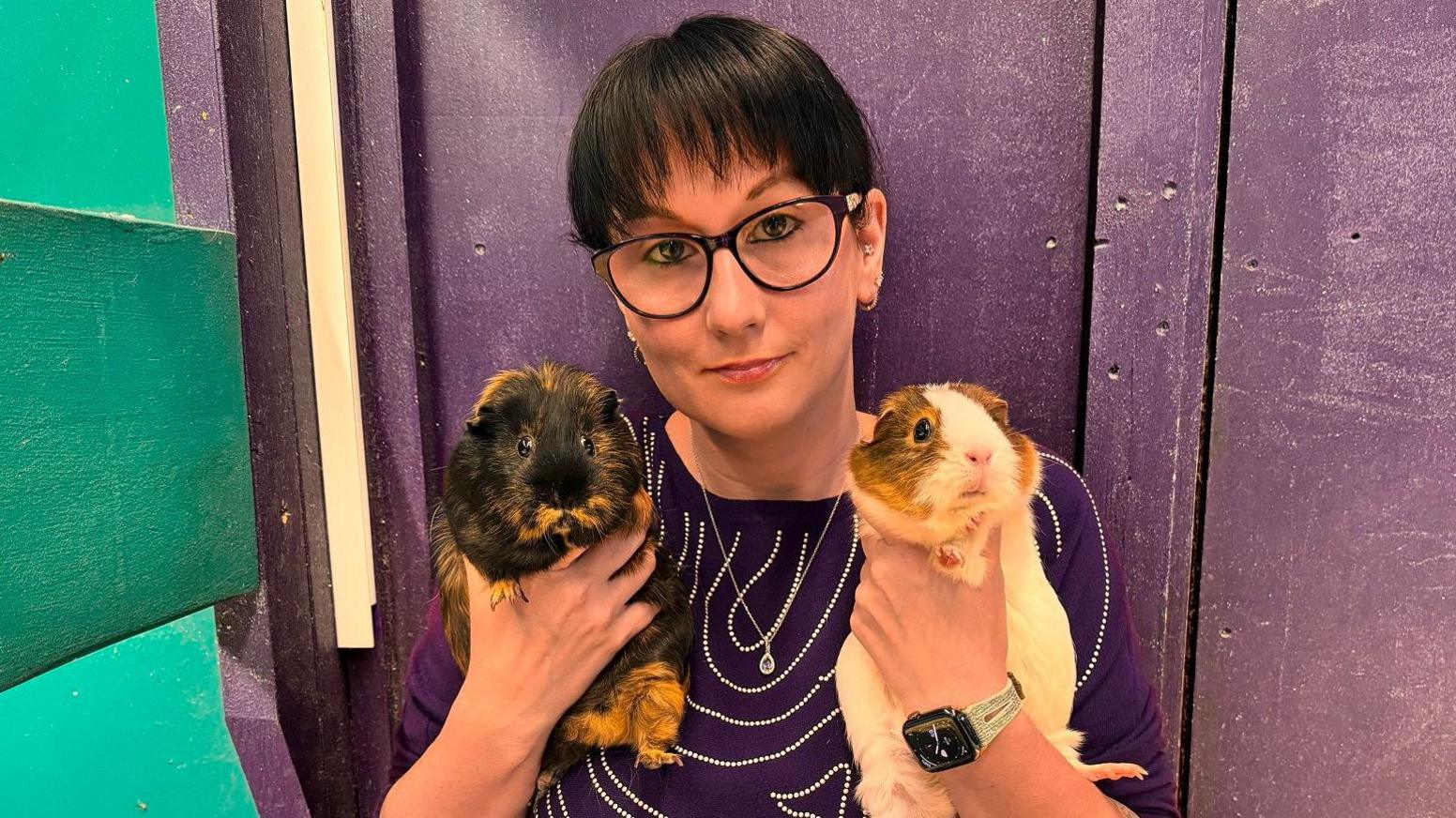Guinea pig home in cash crunch after Facebook funding row

Sophie Mason said she has been filing reports with Facebook every day since her page was demonetised
- Published
A couple who care for 130 guinea pigs say they fear the pets may have to be rehomed after suddenly - and unexpectedly - losing the income they made from Facebook.
Sophie Mason, 34, and her husband, Mark, jointly run the Facebook page Masons' Cavies, which uses its 1.1 million followers to fund the care of the animals.
Ms Mason told the BBC rehoming the guinea pigs was "a real possibility" after their ability to raise money on the platform was removed without warning.
Meta, which owns Facebook, has not responded to a request for comment.
"They've banned us from everything," Ms Mason said.
"We can't earn any kind of income whatsoever, it's all gone - you end up thinking, god, what am I going to do?"
Ms Mason with around 20 of the guinea pigs in her herd
The couple pay for the care of their huge number of guinea pigs through advertising and premium live-streams that people pay a subscription fee to watch.
They had 2,000 subscriptions at the time their page was demonetised, but this number has since fallen to 1,900 - and they cannot receive the fees while their page is restricted.
But they are no closer to fixing the problem, after Ms Mason's efforts to contact Facebook were unsuccessful.
"Apparently I've broken a rule, but it hasn't told me what the rule is," she said.
"I've spoken to to the tech people at Facebook a couple of times and sent endless emails to try and to get this sorted out - but not even their tech team can work out why this has happened."
The guinea pigs live inside a custom-built enclosure with access to their garden
The exact reason for the ban is unknown - but Ms Mason said they've experienced something similar before.
"Our main platform for the last seven years has been Facebook," she said.
"Back in 2021, they did this to us because their system had flagged the word 'pig' as a police hate crime.
"As a creator, if you do anything that breaks community standards, you are automatically demonetised. You lose your source of income."
At the time, Facebook accepted a mistake had been made and rectified the error.
But this time, so far, they have not been so lucky.
The guinea pigs' enclosure, built by Mark, is on multiple levels and has its own air conditioning
Anyone with just one or two pets will know that caring for them is an expensive hobby, so it is no wonder that the bills for 130 animals can add up.
Ms Mason said it costs "a huge amount" to pay for the care of their guinea pigs, with fees ranging from housing and heating to food and medical bills.
And that's before even taking into account the cost of rescuing animals that they put up for adoption.
"In February, we rescued 53 boys, and we got them all better," she said.
"We got them all neutered, and we're down to two now that we've got left to find homes for out of the 53.
"We got them all health checked multiple times - if you want to put a figure on that, that rescue cost was about five and a half grand."
They say their pets have either been rescued from bad situations or taken on from other people - with some also purchased, but they are not running a charity or an animal rescue.
King Pecan, one of the couples' first guinea pigs
And the couple's work has done good for more guinea pigs than just their own.
"The amount of people that we've inspired to improve the care of their guinea pigs is amazing," Ms Mason said.
"People send you photos of the setups that they've made, which are so much bigger and so much better, and they're providing better food and better quality hay and spending more time with them.
"I'm so proud of that."
- Published2 February
- Published1 August